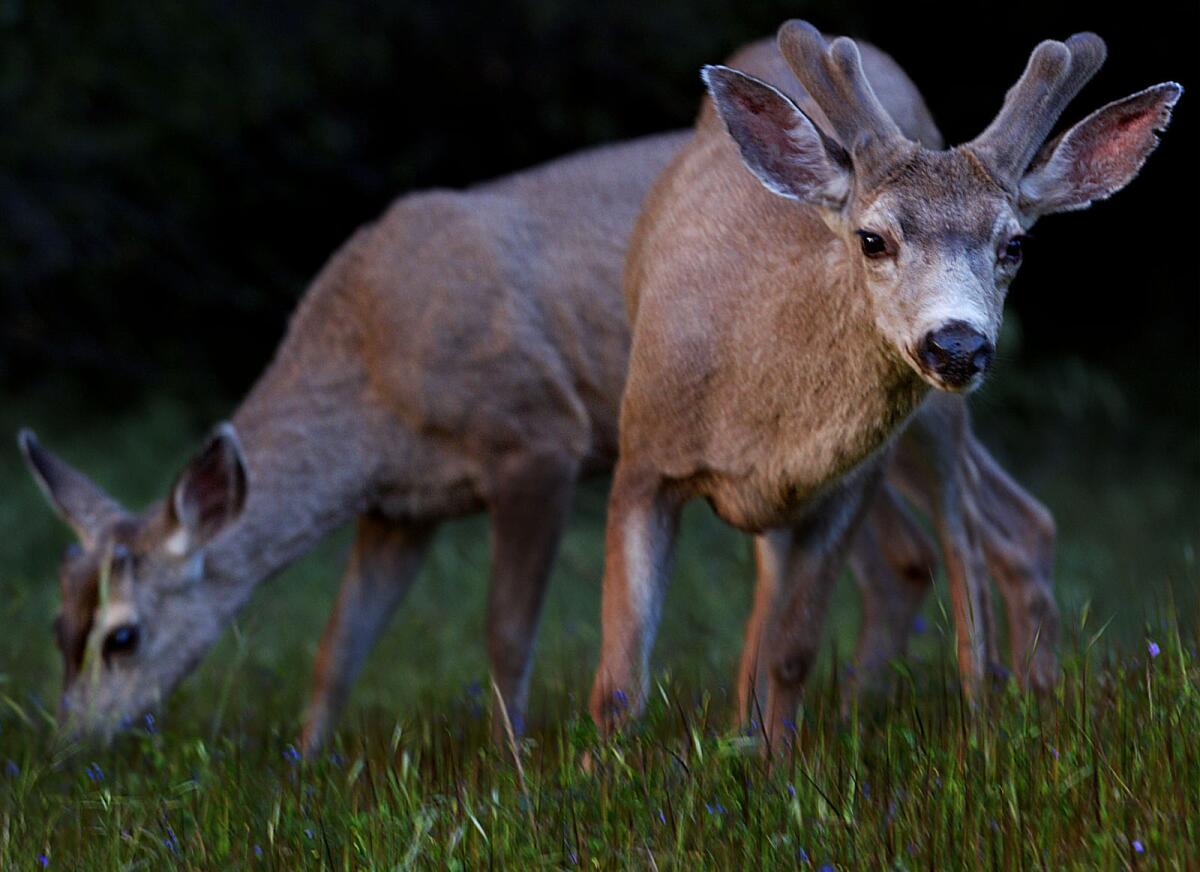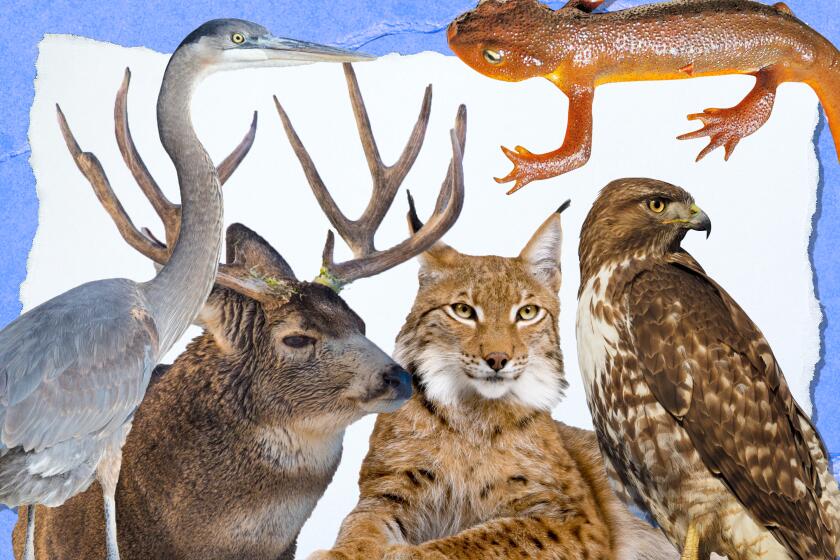COVID detected in a California mule deer, first wildlife case in state

- Share via
California wildlife officials have confirmed the state’s first case of COVID-19 in a wild animal, detected in a mule deer killed in 2021 in El Dorado County.
The coronavirus has been confirmed in pets and zoo animals, but the California Department of Fish and Wildlife said this is the first case of COVID-19 confirmed in “free-ranging California wildlife,” according to a news release from the agency.
The infected deer was killed by a hunter in 2021 and sampled at that time for chronic wasting disease, a type of neurodegenerative disorder that affects deer, elk and moose. That disease has never been found in the state’s deer or elk populations, but fish and wildlife department routinely monitors for it, the agency said.
Arcturus, also known as XBB.1.16, has also attracted attention after reports linking it to what has been a rare COVID-19 symptom: pink eye.
After recent media reports about COVID-19 in free-ranging deer in Canada and other states, the California Department of Fish and Wildlife decided to test archived deer samples for the coronavirus, finding the positive case in the deer from El Dorado County.
“We do not see SARS-CoV-2 as a threat to our deer populations but we continue to work with partners to better understand what, if any, significance SARS-CoV-2 infections in wildlife may pose to wildlife and people,” Dr. Brandon Munk, a senior wildlife veterinarian with the state agency, said in a statement. He said other researchers have found that while deer can get infected and pass COVID-19 to other deer, they do not appear to get sick from the virus.
The U.S. Department of Agriculture’s Animal and Plant Health Inspection Service is continuing to monitor cases of COVID in animals, including deer. The California Department of Fish and Wildlife will collaborate with federal officials to sample and test more California deer for COVID-19, the agency said.
Grab a pair of binoculars and get out on the trails.
According to the U.S. Centers for Disease Control and Prevention, people can spread COVID-19 to animals, but the risk of animals spreading the virus to people is considered low.
“This is certainly another reminder not to intentionally feed deer,” Munk said. “Artificially congregating deer increases the likelihood of spreading disease and may be a source of SARS-CoV-2 exposure for deer.”
There is no evidence that people can contract COVID-19 by eating meat from an infected animal, but the fish and wildlife department encouraged hunters to “take appropriate precautions when handling and dressing game and practice good food hygiene when processing their animals.”
More to Read
Sign up for Essential California
The most important California stories and recommendations in your inbox every morning.
You may occasionally receive promotional content from the Los Angeles Times.
















